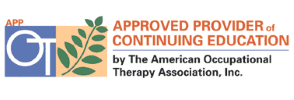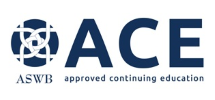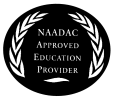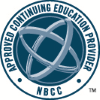|

Relias Learning, LLC is accredited as a provider of continuing nursing education by the American Nurses Credentialing Center’s Commission on Accreditation (ANCC).
|
|

Relias Learning, LLC is an approved provider of continuing education courses by the American Occupational Therapy Association. The assignment of AOTA CEUs does not imply endorsement of course content, products, or clinical procedures by AOTA. |
|

Relias Learning, LLC, #1273 is approved as a provider of continuing education by the Association of Social Work Boards (ASWB) through the Approved Continuing Education program. Approval period: 2/10/2015 - 2/10/2018. Social workers should contact their board to determine credit.
|
|

Relias Learning, LLC is an approved provider of continuing education by NAADAC, the Association for Addiction Professionals (#0484).
|
|

Relias Learning, LLC is an NCERS-approved provider of continuing education. This program is approved by the National Association of Long Term Care Administrator Boards. For additional information, contact NAB at 1444 I St., NW, Suite 700, Washington, DC 20005, (202) 712-9040.
|
|

Relias Learning, LLC has been approved by NBCC as an Approved Continuing Education Provider, ACEP No. 6110. Programs that do not qualify for NBCC credit are clearly identified. Relias Learning, LLC is solely responsible for all aspects of the programs.
|